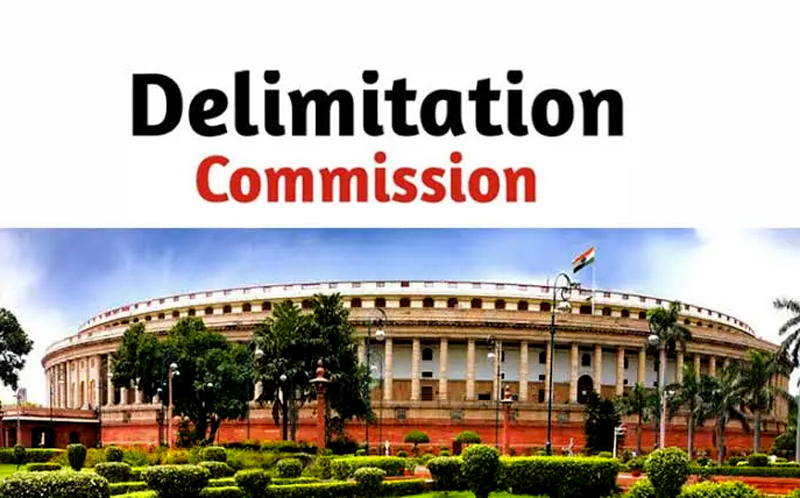*Public hearings at some places likely for settling claims
Sanjeev Pargal
JAMMU, Feb 27: The Delimitation Commission is likely to put its draft report on delimitation of 90 Assembly constituencies in Jammu and Kashmir in public domain anytime after March 4, the deadline for filing of suggestions/objections by five Associate Members. The report will remain in public domain for 42 days for claims and objections by political parties, organizations and individuals.
Official sources told the Excelsior that going by the speed the Delimitation Commission has started its work, it is expected to meet May 6 deadline for submission of final report after settling claims and objections received for its draft report during 42-day long period when the Commission could also visit Jammu and Kashmir for public hearings.
The Delimitation Commission is headed by Justice (Retired) Ranjana Prakash Desai and comprised Chief Election Commissioner (CEC) Sushil Chandra and State Election Commissioner (SEC) KK Sharma.
“The Panel has invited suggestions/objections from five Associate Members till March 4. After settling the objections, if any received from the Members, the Commission is expected to put draft report in public domain for final claims and objections from all,” the sources said.
Five Associate Members of the Panel include Union Minister of State in the Prime Minister’s Office (PMO) Dr Jitendra Singh and Jugal Kishore Sharma, both BJP Lok Sabha members from Jammu division and Dr Farooq Abdullah, Mohammad Akbar Lone and Hasnain Masoodi, all three National Conference MPs from Kashmir Valley.
Presently, only BJP and National Conference, the two political parties which have representation in the Delimitation Commission, are eligible for filing claims and objections before the Panel. However, once the report is put in public domain, most likely around March 10, all other political parties, organizations and even individuals will be able to give suggestions/objections to the Panel.
“But, it will be discretion of the Delimitation Commission to accept or reject the suggestions,” sources pointed out.
It has, however, accepted certain suggestions and objections of five Associate Members to its draft report including restoration of couple of Assembly constituencies, de-reservation and renaming of others besides shifting Panchayats and Patwar Halqas from some segments to others.
Sources said the Commission will settle claims and objections received from the public and then submit final recommendations on or before May 6.
The Panel was set up on March 6, 2020 with one-year term which was extended by another year on March 6, 2021. Few days back, the Union Ministry for Law and Justice extended term of the Commission by two months. It has now May 6, 2022 deadline to finalize its recommendations for delimitation of 90 Assembly seats of Jammu and Kashmir. It has already allocated 47 Assembly segments to Kashmir division and 43 to Jammu region.
While splitting Jammu and Kashmir into two Union Territories through the Reorganization Act, the Union Home Ministry had increased Assembly seats of Jammu and Kashmir by seven taking total seats to 114-24 of which are reserved for PoJK while election will be held for 90 seats.
Erstwhile State of Jammu and Kashmir had 111 seats including 24 reserved for PoJK while elections were held for 87 seats. With creation of Ladakh as Union Territory, four seats of the region were reduced and the Assembly was left with 83 seats. However, with increase of seven seats, J&K UT will have an Assembly of 90 seats. Two women MLAs will be nominated to the House, which was the position earlier also.
In the previous Assembly, Kashmir had 46 seats, Jammu 37 and Ladakh four.
Delimitation of the Assembly constituencies was last held in 1994-95 during the President’s Rule when seats of the erstwhile State Assembly were raised from 76 to 87. Jammu region’s seats were increased from 32 to 37, Kashmir’s from 42 to 46 and Ladakh’s two to four. However, the delimitation was freezed in 2002 by the then National Conference Government headed by Dr Farooq Abdullah in line with the decision taken by then Central Government led by Atal Bihari Vajpayee.
Elections to the Legislative Assembly will be held only after delimitation of Assembly constituencies is completed.


